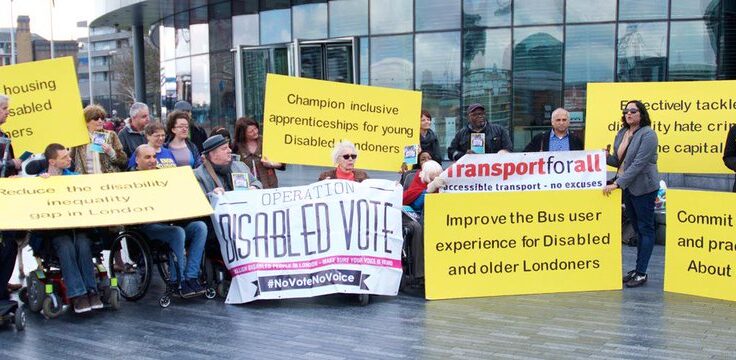Accessible Voting: Upholding the Rights of Disabled Voters
It is a fundamental right for all voters to cast their votes independently and in secret and that we all have equal access to the ballot box and can participate fully in the democratic process.

Ensure Accessible Voting Experience for All
It is a fundamental right for all voters to cast their votes independently and in secret. Local authorities are mandated to facilitate this process, ensuring that Disabled voters are not subjected to any form of disadvantage or substandard service compared to other voters at polling stations.
Support Options for Disabled Voters
Staff at polling stations must inform voters about the available support options for those who vote in person. This includes sign language interpreters, large print ballots, and assistance from the Presiding Officer. Refusing a registered voter, the chance to vote based on their physical or mental impairments is strictly prohibited.
Accessible Polling Stations
Local authorities must provide voting opportunities to everyone eligible, but they are not compelled to make every polling station fully accessible. In cases where a polling station is inaccessible, the Presiding Officer should deliver the ballot paper to the Disabled voter outside the station. However, many Disabled people consider this unsatisfactory.
Equality Act 2010 and Anticipatory Duty
Under the Equality Act 2010, Returning Officers in Great Britain have a duty to anticipate the needs of Disabled voters and make reasonable adjustments to remove substantial disadvantages for them. This includes providing appropriate equipment and support at polling stations.
Accessible Information
There’s an emphasis on ensuring that information about voting is communicated in an accessible way. This includes providing election notices in alternative formats such as Braille, other languages, graphical representations, audio formats, etc.
You can find more detailed information about what equipment and information must be available at polling stations on the Electoral Commission Website.
Equipment at Polling Stations
The Elections Act 2022 requires that reasonable equipment be provided at polling stations to enable or make it easier for Disabled voters to vote independently and secretly. This includes tactile voting devices, large print ballot papers, magnifiers, seating, and polling booths at wheelchair level.
You can find more detailed information about what equipment and information must be available at polling stations on the Electoral Commission Website.
What if I encounter a problem?
If you are aware of inaccessible places previously designated as polling stations, contact your local authority as soon as possible to request they explore alternatives. Together, we can ensure that all voters have equal access to the ballot box and can participate fully in the democratic process.
The Electoral Commission is responsible for overseeing the electoral process in the UK. They can provide information and advice on voting rights for disabled voters. You can contact them at 020 7271 0592 or 020 7271 0728.
- Electoral Commission website is: https://www.electoralcommission.org.uk/
Disabled voters are entitled to the following accommodations:
- Assistance with Ballot Marking: Voters may ask for help from the Presiding Officer to mark their ballot. They may also bring someone to assist them, such as a family member over 18 or another registered voter.
- Tactile Voting Devices: These are available to aid those with visual impairments or limited dexterity, allowing them to mark the ballot paper easily.
- Large-Print Ballot Papers: Every polling station should display a large-print ballot paper for reference. Voters who require it can take this version into the booth, although it cannot be used for voting.
- Assistance Outside the Polling Station: When a polling station is inaccessible, the Presiding Officer must bring the ballot paper to the voter outside.
Further Resources
- The Electoral Commission webpage on Understanding the barriers to voting for disabled people
- Electoral Commission Guidance for Returning Officers – Assistance with voting for disabled voters
- The Electoral Commission – Providing equipment at the polling station that enables or makes voting easier for disabled voters